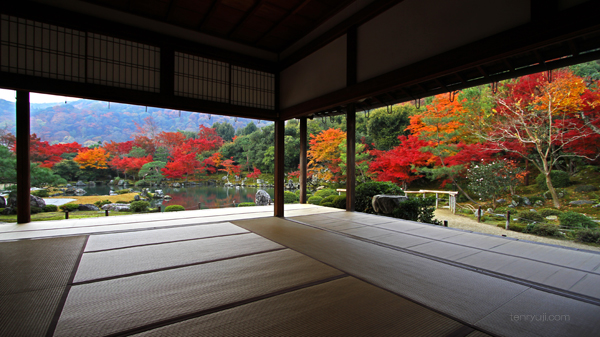Welcome to our newsletter, dear readers,
We begin our monthly selection with some pages from a Japanese collection of Zen koans, Entangling Vines (Shumon Kattoshu). At times puzzling, obscure, dazzling or amusing, these often brief anecdotes and dialogues involving monks and all sorts of lay people serve to challenge the mind, shaking it awake from its everyday slumber.
Cui Langzhong asked Zhaozhou Congshen, “Have any of the sages ever fallen into hell?”
“They’re the first to go there,” replied Zhaozhou.
“But they’re enlightened teachers,” said Langzhong. “Why would they fall into hell?”
“Well, if I didn’t fall into hell, how could I help you?” Zhaozhou answered.
Tenryu-ji Zen monastery, Kyoto.
• Next we have the latest addition to our Sacred Audio Collection, the Sahana Vavatu, one of the best-known Shanti Mantras or propitiatory invocations. Found in the Taittiriya and Katha Upanishads, this brief Sanskrit prayer is used particularly at the beginning of study, instruction and spiritual transmission.
• Finally, we present an introduction to Rodney L. Taylor’s The Way of Heaven, on the liturgical practices and the depth of the Confucian tradition.
To state that Confucian ritual was accompanied by music does not capture the extraordinary importance placed upon music by the Confucian tradition… He describes one of the traditional pieces of music as perfect beauty and perfect goodness, an indication of the ultimate moral basis of music from a Confucian point of view. It is also recorded in the Analects that on another occasion Confucius took no notice of his food for three months after hearing a particular piece performed.




